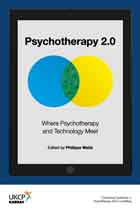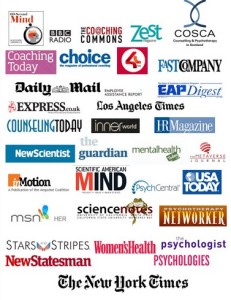 “Where is human nature so weak as in the bookstore?”
“Where is human nature so weak as in the bookstore?”
Henry Ward Beecher
Psychotherapy 2.0: Where Psychotherapy and Technology Meet
Editor : Philippa Weitz
The digital age is both exciting and challenging for psychotherapy, opening the door to clients groups previously not able to access psychological help, whilst also providing the challenges caused by social media and internet abuse and how these impact on the consulting room.
Psychotherapy 2.0 blows open the consulting room doors and shows successful pathways for attracting new clients to gain access to psychological help, as well as demonstrating that despite initial scepticism, working online as a psychotherapist or counsellor can be as effective as ‘face2face’ work: the therapeutic relationship may be different but it remains the centrally important feature for successful psychotherapy. It follows therefore that all psychotherapists and counsellors need to be fully informed about the impact of the digital age on their clinical practice.
From Gutenberg to Zuckerberg: What You Really Need to Know About the Internet
John Naughton
Our society has gone through a weird, unremarked transition: once a novelty, the Net is now something that we take for granted, like mains electricity or running water. In the process we’ve been surprisingly incurious about its significance or cultural implications. How has our society become dependent on a utility that it doesn’t really understand?
John Naughton has distilled the noisy chatter surrounding the internet’s relentless evolution into nine clear-sighted areas of understanding. In doing so he affords everyone the requisite knowledge to make better use of the technologies and networks around us, as well as highlighting some of their more disturbing implications.
This article first appeared in the Winter 2014 issue of TILT Magazine ~ Therapeutic Innovations in Light of Technology.
Click here to read the entire PDF version of The Love of Books article.
Access TILT Magazine archives: http://issuu.com/onlinetherapyinstitute/docs


